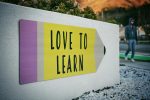Examination Civic Education Primary 1 Second Term Lesson Notes Week 13


Civic Education Primary 1 Second Term Lesson Notes Week 13
Examination of the Topics Covered in the Second Term
Exam Instructions for Teachers and Students
Instructions for Teachers:
- Ensure a Quiet Environment: Make sure the classroom is quiet, with no distractions, during the exam.
- Clear Instructions: Provide clear and simple instructions for each section of the exam.
- Supervision: Supervise the students properly to prevent cheating or any unfair practices during the exam.
- Assist When Necessary: If a student does not understand any question, offer a brief clarification without giving away the answer.
- Encourage Honesty: Remind the students to answer the questions honestly and independently.
- Time Management: Ensure each student has enough time to finish the exam, but also encourage them to complete the questions within the set time.
- No Communication: Students should not communicate with each other during the exam.
- No Malpractices: Make sure students know that any form of cheating or dishonesty will not be tolerated.
- Safe Handling of Papers: Ensure all exam papers are handled securely and submitted correctly.
- Respect the Students: Treat all students fairly, giving them an equal opportunity to show their knowledge.
Instructions for Students:
- Read Carefully: Read each question carefully before answering.
- Write Neatly: Write your answers clearly and neatly so that they are easy to read.
- Do Your Best: Answer the questions to the best of your ability. Don’t rush.
- No Talking: Do not talk to anyone during the exam. This includes asking your classmates for help.
- Avoid Looking Around: Focus on your own paper. Do not look at other students’ papers.
- No Using Notes: Do not use any notes, textbooks, or any other materials during the exam.
- Stay Calm: If you don’t understand a question, don’t worry. Just do your best and move to the next one.
- Answer All Questions: Try to answer all the questions. If you’re not sure, take your best guess.
- Submit on Time: Make sure to finish your exam on time and submit it when asked.
- Cheating is Not Allowed: Do not cheat. It is important to be honest and give your own answers.
Part A: Objective Questions (Fill-in-the-Blank with Options)
- ________ means listening and doing what you are told.
(a) Obedience
(b) Disobedience
(c) Ignorance
(d) Rejection - Food should be kept in a ________ place to stay safe.
(a) cold
(b) hot
(c) messy
(d) dry - ________ rules help keep us safe in the classroom.
(a) Bad
(b) Family
(c) School
(d) None - If food is ________, it should be thrown away.
(a) fresh
(b) hot
(c) old
(d) clean - ________ is important to prevent sickness.
(a) Food safety
(b) Fighting
(c) Cheating
(d) Ignoring - The government makes rules to ________ people.
(a) hurt
(b) help
(c) annoy
(d) confuse - Disobeying rules can lead to ________.
(a) prizes
(b) happiness
(c) punishment
(d) rewards - Washing ________ before eating is very important.
(a) feet
(b) shoes
(c) hands
(d) books - Obeying ________ is important for a peaceful home.
(a) parents
(b) animals
(c) strangers
(d) friends - ________ food helps to keep you healthy.
(a) Stale
(b) Safe
(c) Hot
(d) Frozen - Obeying your ________ helps keep the house clean.
(a) teacher
(b) friend
(c) parent
(d) classmate - It is good to follow the ________ of the school.
(a) noise
(b) rules
(c) mess
(d) fun - We wash our ________ to avoid germs.
(a) books
(b) hands
(c) clothes
(d) toys - ________ food can make us sick.
(a) Safe
(b) Rotten
(c) Fresh
(d) Clean - We should obey ________ to learn well.
(a) food
(b) rules
(c) noise
(d) games - Teachers tell us the ________ at school.
(a) stories
(b) rules
(c) jokes
(d) games - ________ means doing what is right.
(a) Obedience
(b) Disobedience
(c) Ignoring
(d) Arguing - If we don’t follow ________ rules, we may get into trouble.
(a) government
(b) teacher
(c) animal
(d) weather - Food that is ________ should be thrown away.
(a) fresh
(b) rotten
(c) cooked
(d) clean - Following rules in the ________ helps us learn better.
(a) classroom
(b) street
(c) home
(d) kitchen
Part B: Theory Questions (Short Answer)
- What is food safety?
- Why should we wash our hands before eating?
- What happens if food is not safe to eat?
- Why is it important to obey school rules?
- What are some examples of good rules at home?
- How do rules help keep us safe?
- What does obedience mean?
- Why should we obey our parents?
- What should you do with food that is spoiled?
- How does obeying rules help at school?
- Why is it important to follow food safety rules?
- What happens if we do not obey rules?
- What is a consequence of not following government rules?
- How can we keep our food safe to eat?
- What is the role of a teacher in a classroom?
- How does obedience help us at home?
- Why do we need to follow rules at school?
- What should we do if we see spoiled food?
- How do we make sure food is clean?
- What happens when we break the rules at school?
Part C: True or False Questions
- We should wash our hands before eating. (True/False)
- Disobeying rules does not have consequences. (True/False)
- Obeying rules helps keep us safe. (True/False)
- Food safety is not important. (True/False)
- Parents make rules to help us. (True/False)
- Teachers help us by setting rules. (True/False)
- Disobeying the government’s rules is okay. (True/False)
- Food should be thrown away if it is spoiled. (True/False)
- Obeying our parents makes our home better. (True/False)
- We can ignore school rules. (True/False)
- It is okay to cheat during an exam. (True/False)
- We should always obey the teacher. (True/False)
- Food that smells bad is safe to eat. (True/False)
- Obedience is important in school. (True/False)
- Teachers set rules to help the class. (True/False)
- It is important to listen to our parents. (True/False)
- Following rules makes us happy. (True/False)
- Disobeying rules is good for us. (True/False)
- We should keep our food clean. (True/False)
- Cheating is allowed during exams. (True/False)
Part D: Fill in the Gaps Questions (Without Options)
- Food should be kept ________ to stay safe.
- We should always ________ our hands before eating.
- Obedience is ________ for a peaceful home.
- ________ helps us learn better in school.
- We should obey our ________ to stay safe.
- Food safety helps prevent ________.
- Obeying rules at school makes us ________.
- Disobeying the teacher can lead to ________.
- We should not eat ________ food.
- It is important to ________ our food before eating it.
- ________ rules help us stay safe.
- Parents make rules to keep us ________.
- School rules help us ________ with our friends.
- ________ is important for safety at home.
- We should ________ food if it is bad.
- Disobeying the rules may lead to ________.
- ________ food should be stored properly.
- Obedience to parents keeps the home ________.
- We should follow the ________ to stay safe.
- ________ helps people live together peacefully.
These questions provide a comprehensive review of the topics covered this term, helping students prepare for their exam in an engaging and simple manner.


Revision Test Civic Education Primary 1 Second Term Lesson Notes Week 12
Revision Test Civic Education Primary 1 Second Term Lesson Notes Week 12 – EduDelightTutors
Related
Related Posts


Second Term Revision and Readiness Test Security Education Primary 1 Second Term Lesson Notes Week 1
Rules and Regulations for good health
Pictorials Reading of Objects that start with “an” English Grammar Primary 1 First Term Lesson Notes Week 6
About The Author
Edu Delight Tutors
Am a dedicated educator with a passion for learning and a keen interest in technology. I believe that technology can revolutionize education and am committed to creating an online hub of knowledge, inspiration, and growth for both educators and students. Welcome to Edu Delight Tutors, where learning knows no boundaries.